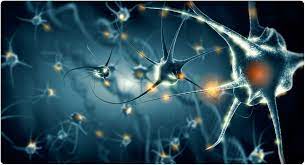
Understanding Cognitive Disorders: Diagnosis and Treatment Strategies
Cognitive disorders, encompassing a spectrum of conditions affecting memory, perception, and problem-solving, present unique challenges for individuals and their loved ones. Recognizing the diagnostic pathways and treatment options for cognitive disorders is crucial for addressing their impact effectively. In this article, Evoke Neuroscience provides an in-depth exploration of how cognitive disorders are diagnosed and treated.
Diagnosis of Cognitive Disorders:
Diagnosing cognitive disorders is a complex process that involves a series of assessments and examinations:
1. Clinical Evaluation: The initial step involves a thorough review of the individual’s medical history, focusing on symptoms, their progression over time, and any potential risk factors. Information about family history is also collected to identify genetic predispositions.
2. Physical Examination: Evoke Neuroscience A comprehensive physical examination is conducted to rule out any physical conditions that may be causing or contributing to cognitive symptoms. This examination includes assessing reflexes, strength, balance, coordination, and sensory perceptions.
3. Neurological Assessment: The clinician evaluates neurological functions to identify any issues that could be causing cognitive problems. These assessments encompass cognitive abilities such as memory, attention, problem-solving, and language skills, helping gauge the extent of cognitive impairment.
4. Laboratory Tests: Blood and urine tests are performed to identify underlying factors that may contribute to cognitive symptoms. These tests can detect infections, vitamin deficiencies, thyroid problems, or metabolic imbalances.
5. Brain Imaging: Brain scans, including computed tomography (CT) or magnetic resonance imaging (MRI), may reveal structural abnormalities such as strokes, tumors, or changes associated with neurodegenerative diseases like Alzheimer’s.
6. Psychiatric Evaluation: A psychiatric evaluation helps determine if comorbid conditions like depression, anxiety, or other psychiatric disorders are contributing to cognitive problems.
Effective Treatment of Cognitive Disorders:
The treatment of cognitive disorders is multifaceted and aims to achieve several key objectives:
1. Symptom Management: Medications are often prescribed to alleviate cognitive symptoms and, in some cases, slow the progression of cognitive disorders like Alzheimer’s disease and other dementias. These medications may enhance neurotransmitter function or reduce behavioral disturbances.
2. Cognitive Therapies: Cognitive rehabilitation and therapy focus on improving cognitive abilities, enhancing independence, and teaching compensatory strategies to overcome cognitive deficiencies. This includes memory enhancement techniques and problem-solving strategies.
3. Lifestyle Modifications: Lifestyle interventions play a crucial role in managing cognitive disorders. Regular physical activity, a well-balanced diet, social interaction, and engagement in cognitively stimulating activities can help maintain cognitive function and overall well-being.
4. Addressing Associated Symptoms: Cognitive disorders are often accompanied by sleep disturbances, agitation, and mood disorders. Treatment plans may include strategies to address these symptoms, improving the individual’s overall quality of life.
5. Supportive Services: A network of supportive services and resources is available to assist individuals and their families in coping with the challenges posed by cognitive disorders. This includes adult daycare programs, support groups, and caregiver support.
Conclusion:
In conclusion, Evoke Neuroscience a comprehensive approach to diagnosing and treating cognitive disorders is essential for optimizing patient outcomes and enhancing their quality of life. Early diagnosis, appropriate medical intervention, cognitive therapies, and lifestyle modifications can collectively contribute to managing cognitive disorders and promoting overall well-being.